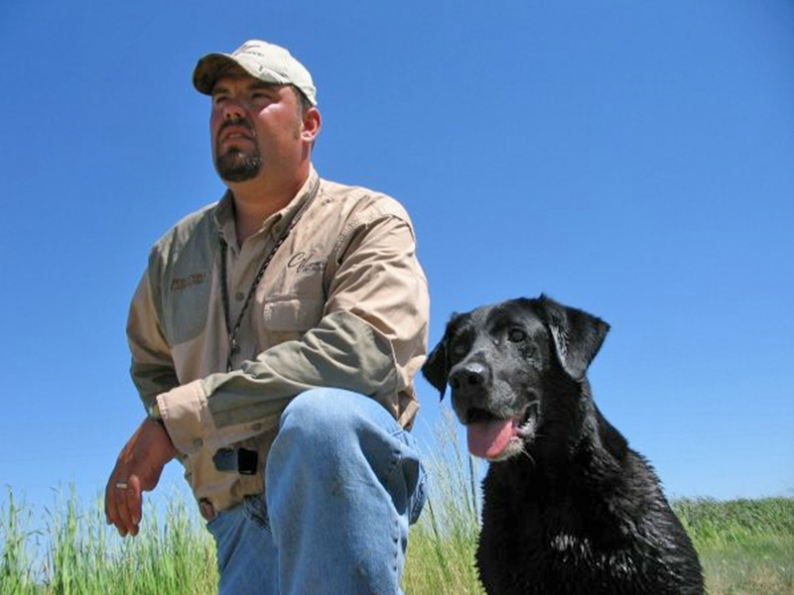
Training a young dog into a sage hunting companion takes time, patience and knowhow. An often-delicate process that cements a lasting bond between the hunting dog and the master. Brad Donald of Highpoint Labradors in Kimball South Dakota has been training and producing top notch labs since 1997. Brad offers these insights and perspectives for offseason gundog training. Donald stresses the importance of keeping a hunting dog sharp and focused all year long.
Spend time with your companion
“Especially evident in a young dog or new puppy, spending time with the dog to grow that bond is so important,” stresses Donald. In an environment where the dog can interact with humans or other dogs, they will learn valuable social skills that can't be experience from inside a kennel. This socialization will pay off down the road during hunting situations where other dogs are present. The activity that comes with hunting that includes unfamiliar dogs and people hopefully won't be a distraction. Making time for veteran dogs is just as important, dog walks and yard time promotes exercise and good conditioning. Good conditioning on a dog not only prevents injuries but keeps energy levels up for longer and more effective training sessions.
Leash training
Obedience and Focus are crucial to successfully training a hunting dog. Leash training helps keep dogs focused and under control at all times. A leash or long check cord will give a trainer the ability to control the dog without having to totally rely on E-collars or other forms of negative reinforcement to achieve the desired result. Practicing to heal, sit, stay or come can all be done with the assist of a leash. This will allow a trainer to keep sessions shorter and under control insuring the dog will be as steady as possible. Obedient and focused dogs will always be the most steady and reliable dogs in the field. The veteran dog trainer stresses, "don't THINK you have a steady dog… KNOW you have a steady dog from repetition in training." This steadiness also relates to force fetching. When a dog in training is steady and focused, force fetch training becomes more effective.
Train for success
As we head into the spring and summer offseason, find open areas with low cut grass such as a soccer field or park area to take your dog for training sessions. When it comes to developing good marking skills, you want to throw your retrieving dummies in an open field where the dog can see where the dummy lands. This makes it much easier for the dog and will equate to a higher batting average of successful retrieves which increases confidence. Keep the wind at your back so the dog isn't allowed to smell the bumper. This will force the dog to mark the spot and run to the spot. After repeated success in an open field, the dog will build great confidence. This will pay dividends in a real hunting situation. So often when a dog relies on smell to recover a down bird, the dog will stop short of the mark and start "hunting.” This style of retrieval eats time out of the hunt and can be frustrating when more birds are flushing out the end of the field. A confident dog that pursues the mark of a down bird will retrieve much faster. A dog that hunts with confidence is going to perform better by naturally hunting harder and retrieving more efficiently come hunting season.
Besides training and breeding Labrador retrievers, Brad Donald also operates Wings of Thunder which is a high-quality pheasant hunting camp in central South Dakota where dogs routinely hunt under and retrieve thousands of pheasants each season. Information of Brad Donald’s High Point Labradors can be found online at www.highpointlabradors.com